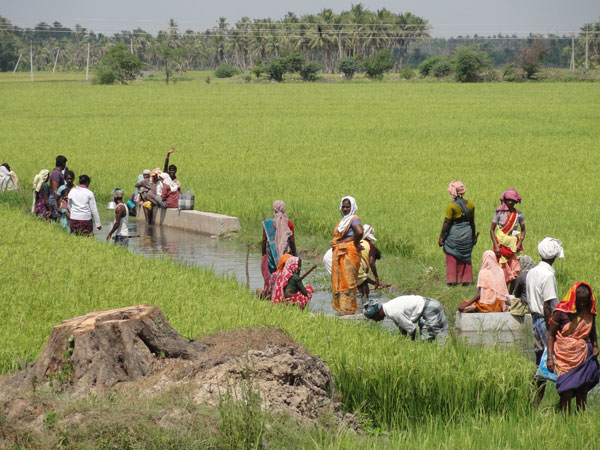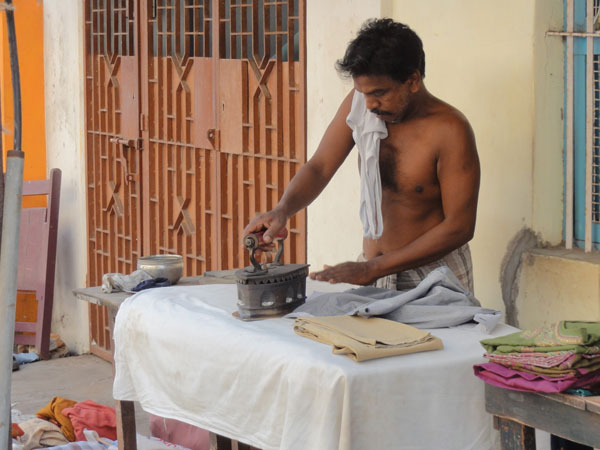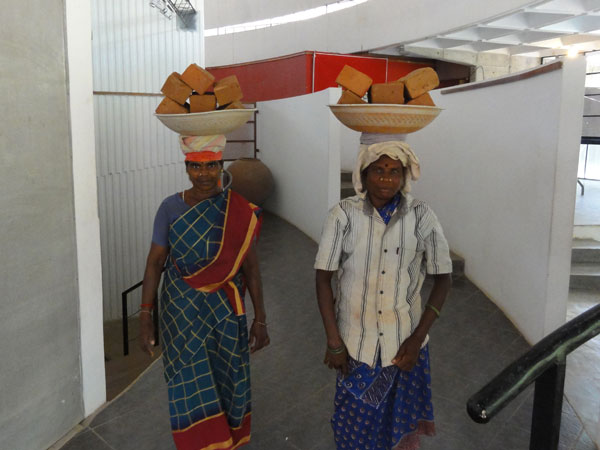
i knew that returning to western
civilisation after time in india would be a kind of a shock. when i
returned to sydney after my three months in india in 1987, i was
utterly repulsed by the obsene affluence, the brash materialist
capitalism that pervaded every aspect of the city. i ranted about it
to strangers at bars and nightclubs, louise and i raved at each other
and probably drove our friends a bit crazy … but the world felt
crazy. it was crazy. nothing in the west made sense after
india.
today munich is peaceful, quiet, sunny; i can’t
understand that despite the clear blue sky, i’m not dripping with
sweat and i need a coat to go outside. i miss the colourful kolams
and the constant tooting traffic. munich’s eternal baustelle (road
works), with their elaborate obstacle-course-like detours, are more
hilarious than irritating. i’m watching out for strolling cows and
sleeping dogs on the road instead of cyclists.

i’m thinking a lot about “work” – something that in the west implies having to do something that you don’t really want to do, something rather tedious but that you get paid for, so you do it – and the different attitude in, for example, auroville, where they don’t talk about “work” at all but rather “giving service”. or at the ashram school in pondicherry, where all the teachers are volunteers; yes, all of them. they teach because they want to, because they have something to share, to give back. in auroville people give service in areas where they can, where they have skills or can contribute usefully. they don’t get paid, instead they receive “maintenance”, credit which enables them to live. it’s not a perfect system, but it’s an alternative which – at least on the surface – seems to generate a lot less stress and a lot more satisfaction. during the festival i appreciated the large army of willing volunteers who enabled everything from cold drinks or coffee to transport to the playing of dvds during presentations. nobody suddenly expected me to operate their dvd at the appropriate time during their presentation (this has happened in many previous situations!). there was always someone else around to do this, or to be sent on an emergency dash for a forgotten prop or a missing piece of equipment, or to take someone somewhere. with more than a billion people in the indian subcontinent, the human resource is plentiful, and in this particular occasion it was a very willing and competent resource.

we work like slaves to pay mortgages,
insurances, and for unnecessary over-packaged consumer goods; while
in india people are quietly sorting through rubbish, sweeping the
streets by hand, pedalling their cycle-rickshaws … happily? it’s
hard to say, but there is definitely less stress and more
contentment. there’s a lot to be said for belief in
reincarnation.
why do we do the work that we do, and how
do we value it? is it only “work” if we are paid in
monetary terms? so much of western society would collapse if all of
those doing voluntary work stopped doing it, and yet the capitalist
system pretends that this work does not exist or is not important.
when we do things voluntarily we have a slight sense of being
exploited or somehow not valued, and yet the reality in the arts is
that nearly all of our “work” is voluntary. i could decide
that this work that i do (for far more than 40 hours a week, and for
far less than an “average” wage) is in fact an offering,
the act of “giving service”. i can value it in other ways
than how much i am earning financially. but if i’m “giving
service”, who am i giving it to? the universe? the mother? the
“audience”? does it matter?